Why Using Cruise Control In The Wet Will Actually Help You
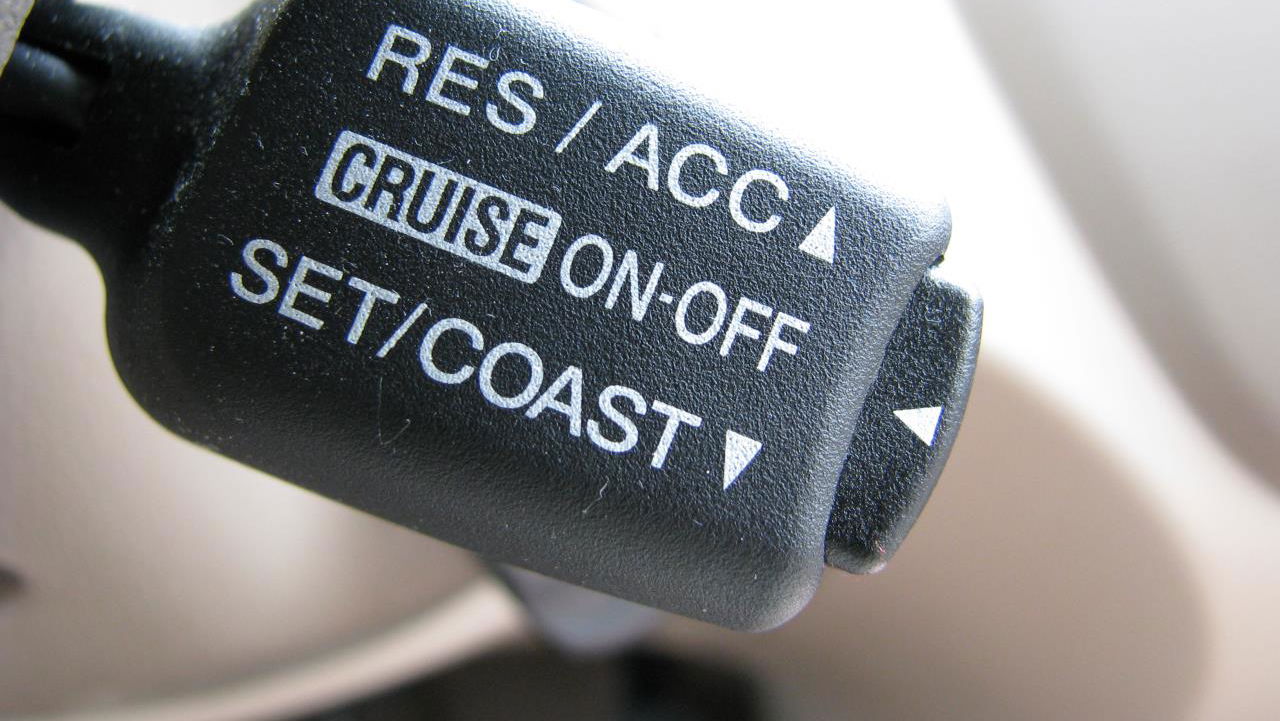
Cruise control has been a staple of motoring for over 50 years, being pioneered by the 1958 Chrysler Imperial as an ‘Auto Pilot’ function. But is it safe to rely on cruise control technology to take over and let you sit back and relax in the wet?
Myths of cars suddenly accelerating and causing large accidents due to a rogue cruise control system in the rain float around the internet and populate forums, pleading with the general public to avoid the lazy option of driving at all costs.
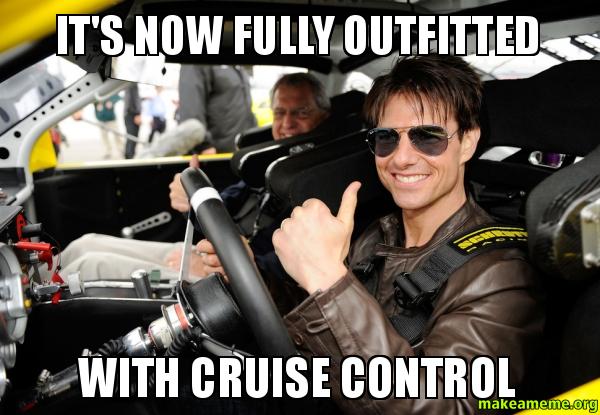
Most cruise control systems are switched off by manual inputs from the driver, be it through the brake pedal or throttle. This input breaks the electronic circuit that has been keeping the car’s speed constant and reverts back to manual speed control. Now think about the input needed to break that circuit in a scenario like a skid or aquaplane incident.
Braking or accelerating during a skid can cause the vehicle to become even more unsettled by throwing the weight of the vehicle forward and getting you in a larger heap of bother. And to understand exactly what’s going on, we need to look into the frictional interaction between the tyres and the road.
Friction occurs naturally when two substances come into contact with each other, and the force that this friction creates is found by knowing the coefficient of friction and the vertical force acting downwards into the surface, known as the ‘normal’ force.
The four wheels act as the points of contact between the car and the road and therefore the friction force is applied through these contact patches. The force produced by the friction of the tyres on the road is called the ‘rolling resistance’ and can be summarised by the following equation:
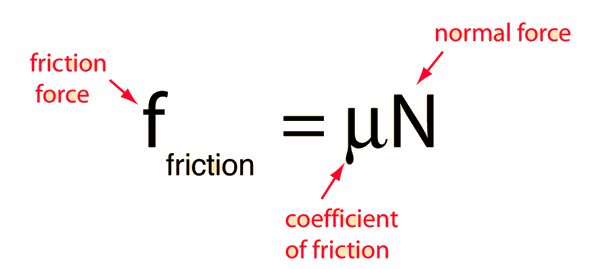
Now, more about the coefficient of friction. Denoted by the symbol ‘µ’, a high coefficient will mean the potential for a large friction force. As an average, tarmac generally has a ‘COF’ of 0.7 when dry. Predictably, rain on a road surface decreases that value down to around 0.4. This decrease in COF results in a decrease in friction between the tyres and the road leading to an inherent lack of control.

Now back to the cruise control. To keep a car travelling at a constant speed, a feedback loop transmits the car’s speed through to the ECU which will then adjust the throttle.
Let’s say you are on the motorway and then suddenly begin to lose control in the wet with cruise control on. The car is set up to keep proceeding at the speed chosen by the driver. And here enters the dangerous part. You’ll want to disengage the cruise control so that you can slow down so your immediate reaction may be to touch the brake pedal to break the circuit and take manual control of the car.
By hitting the brakes firmly in the wet conditions, you run the risk of locking the brakes which has an even larger effect on the coefficient of friction. By locking the wheels, only one constant area of tyre is in contact with the road, allowing the water to quickly lubricate the contact patch which can lead to a dangerous aquaplane. Unlike normal ‘rolling’ braking where the tyre contact patch is constantly being refreshed as the wheels are turning, a locking situation causes the coefficient of friction to plummet to an estimated 0.1-0.2, almost completely negating the driver of any form of control.
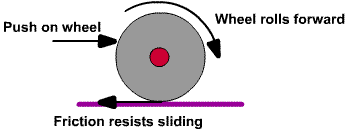
Thankfully, cruise control measures wheel speed as its primary input. As a car aquaplanes, the wheels will suddenly spin faster due to a lack of resistant friction so the control system will send feedback to the cruise control system to decrease throttle to try and match the original wheel speed before the skid. So essentially cruise control should try and reduce the effects of the uncontrollable skid rather than enhance them. Really, the ideal course of action is to try and steer into the skid with your feet fully off the pedals until traction is found again, in which case the brake can then be applied to disengage the cruise control and slow the vehicle to a safe speed.
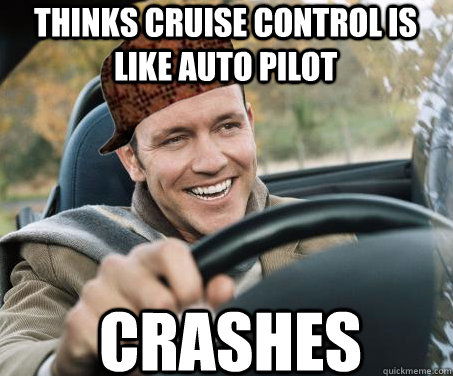
The RAC and other highway agencies will tell you to never use your cruise control in wet or icy conditions and they definitely have a point. It is always best practice to be in full control of your car in case of something like an aquaplane scenario. In terms of outright safety however, cruise control should actually help your car control itself in what can become a very serious situation.
So myths of cruise control making cars take off uncontrollably into motorway barriers? Absolute tripe.


Comments
i never lie…
thanks for the info.
Well…
sadly my car has non of those features, AWD will do fine I guess
Can’t blame the feature for someone setting it too high for road conditions.
Kind of disagree here, I had my car lose traction and slide on a long sweeping corner of a motorway junction in the wet. My cruise control was on (merging motorways), I caught the slide got it straight again. As soon as Id done that cruise sped me back up to my previous speed then let off the throttle, which put me straight back in to a lift off oversteer slide again. Just proves I never touched the brakes (would’ve turned cruise off).
This is what happened to me when my cruise control downshifted on a wet hill. Probably my fault though, I didn’t realize the road had become icey
I aquaplaned once driving in a straight line at 70 with the cruise control on, the revs rose and then the cruise control just cut out. One would have thought that if the ESP were to cut in it would also kill the cruise control?
In my case, cruise control is automatically cancelled when the traction control system detects even the slightest wheel slippage.
Driving in a country that the roads tend to ice over I have used my cruise control when I thought the road was nice a dry until I went in valley and hit a patch of water then to slush to ice my revs jumped and skidded if I didn’t turn it off I would have wound up in the ditch
It scares me how many people in the comments talk about how they were using cruise control in the wet at 70 mph…
Pagination